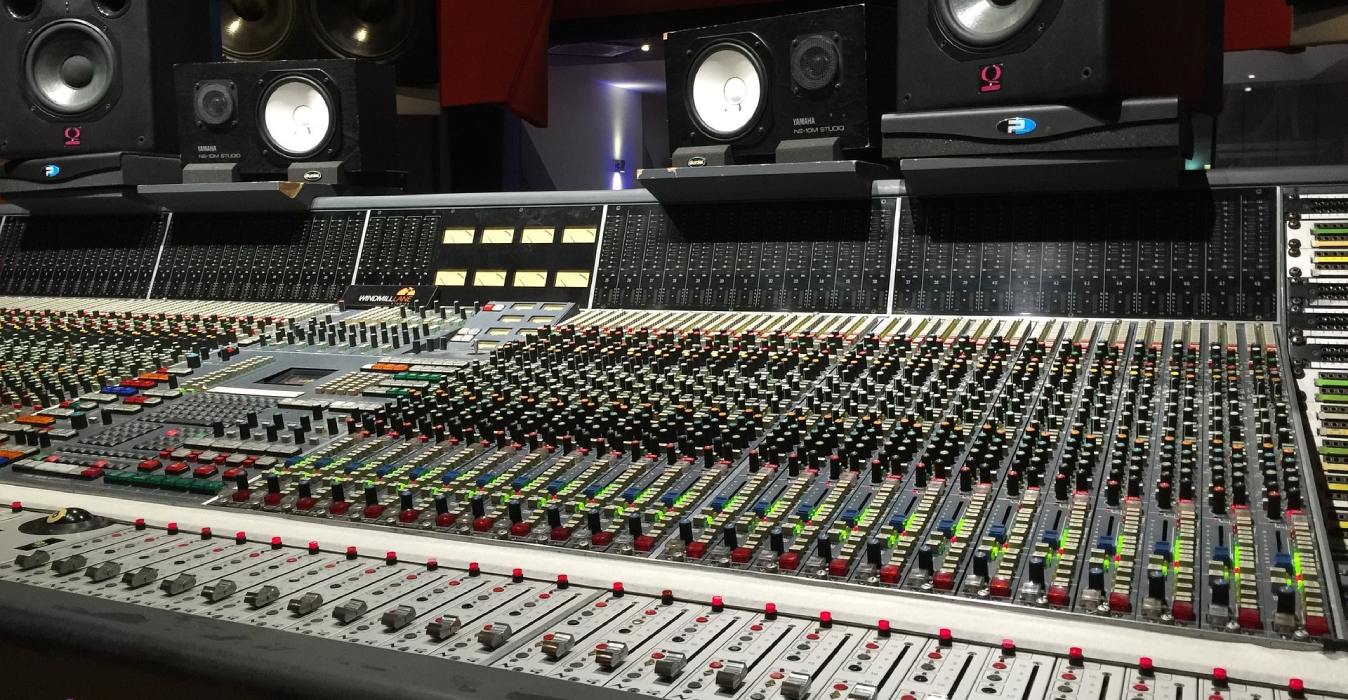
Music connects with the soul and changes people. In order for your music to achieve this inspirational impact, you need to finetune the beats and sounds in a professional manner. But audio production is not an easy job. It is a complicated process, which requires a great deal of knowledge, experience and skills to create music which truly captures people’s hearts and minds.
Primarily speaking, the entire process of audio production involves three key steps, which are as follows:
- Tracking
- Mixing
- Mastering
If you have anything to do with songs or music, you might have heard these terms multiple times. Tracking refers to capturing sound tracks into your digital audio workstation (DAW) application software. It is a technical term for recording. After the sound has been recorded, the next steps are mixing and mastering. Here, it is crucial to understand the difference between the two. The “mix” is created first and then it is given its final form for distribution.
What is Mixing?
Once the individual tracks have been recorded, it is time to adjust and combine them into what we call the “mix”. This is the job of a mixing engineer or mix engineer. The mixing professional is responsible for giving an organized format to the recorded sound tracks. With the use of a software application, the mix engineer first gives proper names to the tracks and then the task of adjusting and editing and combining begins. The purpose of mixing is to make sure that the soundtracks you have recorded do not sound too loud or too soft.
When the soundtrack has reached a stage where each of its elements has a special location and it is balanced, we call it a rough mix. The job at this stage is not over yet. The mix engineer has to do more.
So, the mix engineer continues to work on the rough mix to give it the desired tonal balance and consistency. Using techniques such as highpass filters, lowpass filters and EQ, the professionals readjust the mix. There are a host of other mixing techniques that are applied to adjust every track. So, the adjusting and editing and tweaking goes on. Automation technique is applied as well to ensure that the mix renders equally well across a range of playback systems.
What is Mastering?
The mix is not ready for distribution yet. After the mixing step is done, it is finally time to expertly polish and finetune the mix.
Mastering is the process of transforming the mix to make it presentable for distribution on CD, vinyl and other platforms. It is the final stage to create a professional product for the market. To finetune the mix, professionals use techniques such as linear-phase EQs, character WQs, compressors, stereo wideners, vibe enhancing etc. Mastering is not about turning a bad mix into a good one. In fact, it is the stage where a good mix is transformed into a great mix.
Many sound engineers will carry out mastering and mixing together. While such practice is not illegitimate, it is not the best practice either. Mastering is a distinct and separate process than mixing.
The best practice is to leave the project alone, after the mixing process is over. Get back to the mastering stage after a brief gap. When you do mixing, you will be completely engrossed in the very process. To get the finest results from mastering, you should be in a refreshed state of mind. This will help you get back into the overall perspective and work with the highest level of objectivity. Once the mastering process is over, your product is ready to hit the market.
So, What is the Real Difference Between Mixing and Mastering?
Above, we looked into the details of each, mixing and mastering. Hopefully, you have by now understood that the process of mixing is quite different than that of mastering. Here is a review of the differences again.
Mixing is about creating a good mix. If it is a bad mix, it is not ready for mastering. One cannot turn a bad mix into a good mix through mastering. To organize and adjust a mix, one needs to get back to the mixing stage. Mastering is about taking a good mix and lending it such subtlety that it simply transforms and turns the mix into a cohesive whole, so it is ready to distribute.
At the mixing stage, the engineer has access to all the instruments in a song. Mastering is working with only the final mix.
Mixing is the stage where the professional balances individual instruments in a song. But mastering is about balancing the entire song. One balances the instruments whereas the other balances the song.
Mixing is a time-consuming process. Huge sessions are required to properly carry out the mixing task. Mastering sessions are shorter. Simply put, mixing is 80% work while mastering is 20%.
Mixing ensures that the emotional intent of the artist is properly conveyed in the song. But mastering is the process which involves maximizing the sound quality, so that song sounds just fantastic.
Mixing and mastering are two separate subjects. Each of these processes is also a complicated one. The mastering engineer expects to receive a skillfully adjusted, edited and combined track from the mixing engineer to transform it into a product which is professional and radio-friendly.
Talk to a Music Production Specialist
If you have written a host of songs and plan to produce your own music, you should head straight to D Man Productions LLC. Based in Kansas City, Missouri, we provide online music production services with specializations in R&B and Hip-Hop. Whether you want to learn more about the processes of mixing and mastering or want us to create soul-stirring music for your songs, feel free to reach out to one of our music production specialists or engineers. Our mixing and mastering engineers will transform your ideas into a great, professional product.
You can reach out to us via a phone call, social media such as Twitter and WhatsApp or write us an email using the contact form given on our website.

